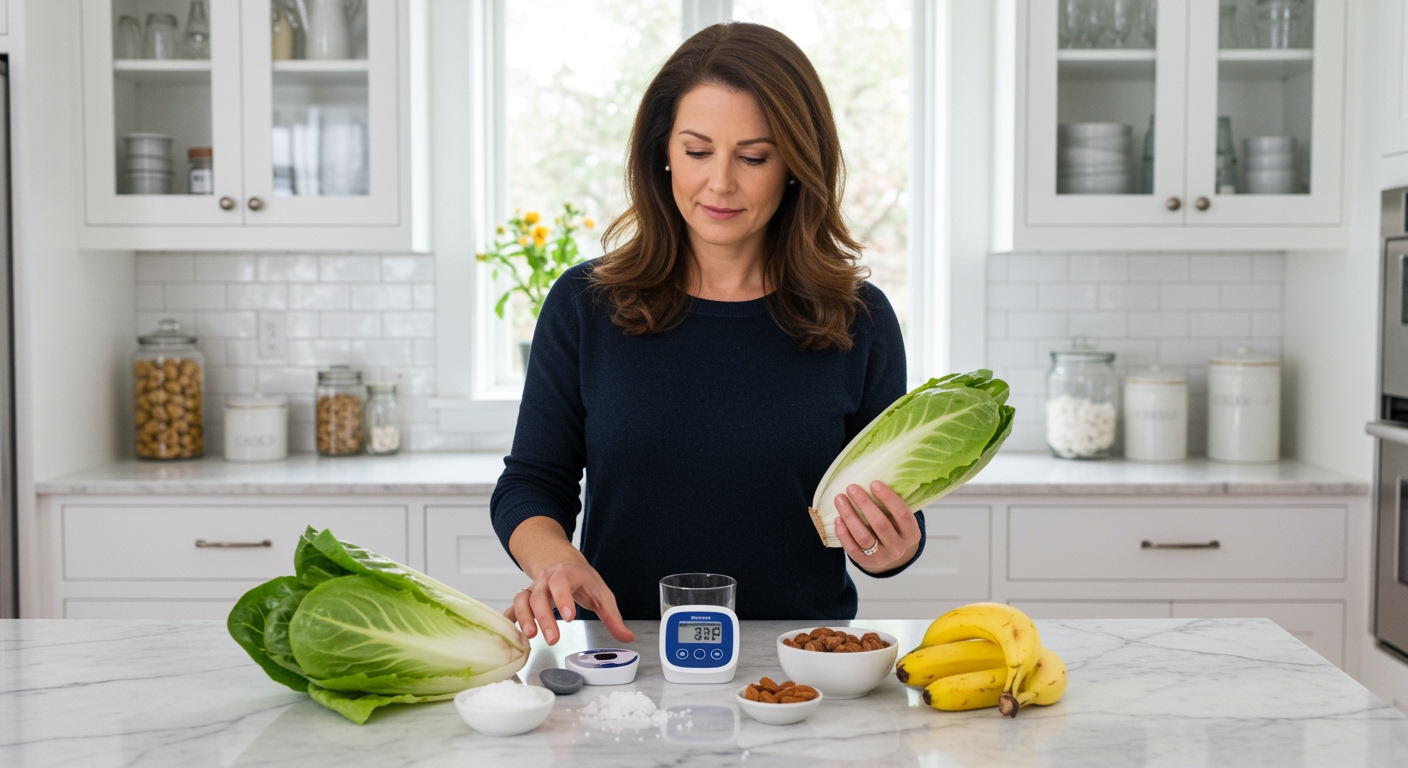✪ Key Takeaway: Escarole contains compounds that may lower blood pressure further, potentially worsening hypotension symptoms in sensitive individuals.
Introduction
You reach for that crisp escarole leaf thinking you are making a healthy choice for your salad.
But if you already struggle with low blood pressure, you might wonder whether this bitter green could make your symptoms worse.
Hi, I am Abdur, your nutrition coach and today I am going to explain how escarole affects blood pressure and whether it poses risks for people with hypotension.
What Makes Escarole Different From Other Leafy Greens?
Escarole belongs to the chicory family and contains unique compounds that set it apart from spinach or lettuce.
This leafy green provides high levels of potassium, with about 314 milligrams per cup of chopped leaves.
Potassium acts as a natural vasodilator, meaning it helps blood vessels relax and widen.
When your blood vessels dilate, blood flows more easily through them, which naturally reduces pressure against vessel walls.
Escarole also contains nitrates, though in smaller amounts than beetroot or spinach.
Your body converts these nitrates into nitric oxide, a powerful compound that further promotes blood vessel relaxation and improved circulation.
✪ Fact: Escarole contains more potassium per serving than many other common salad greens including iceberg lettuce and romaine.
How Does Escarole Affect Blood Pressure Regulation?
Your cardiovascular system relies on a delicate balance of electrolytes to maintain proper blood pressure.
Escarole provides a significant dose of potassium while being naturally low in sodium, with only about 22 milligrams per cup.
This high potassium-to-sodium ratio can trigger your kidneys to excrete more sodium through urine.
When sodium levels drop, your body retains less water, which reduces the total volume of blood circulating through your system.
Lower blood volume combined with relaxed blood vessels creates a double effect that can significantly decrease blood pressure readings.
For people with normal or high blood pressure, this mechanism provides health benefits and helps prevent cardiovascular disease.
However, if you already have low blood pressure, these same mechanisms might push your readings even lower into problematic territory.
✪ Pro Tip: Monitor your blood pressure for several days after eating escarole to identify any patterns or concerning drops.
Can Escarole Trigger Low Blood Pressure Symptoms?
Low blood pressure symptoms typically appear when your systolic reading drops below 90 mmHg or diastolic falls under 60 mmHg.
Common symptoms include dizziness, lightheadedness, fatigue, blurred vision, and nausea.
If you are sensitive to potassium fluctuations, eating large amounts of escarole might worsen these symptoms.
The timing matters significantly because escarole effects on blood pressure typically peak 2-4 hours after consumption.
Some people experience more pronounced effects when they eat escarole on an empty stomach or combine it with other potassium-rich foods.
Your individual response depends on factors like medication use, overall health status, hydration levels, and genetic variations in how your body processes potassium.
People taking certain medications like ACE inhibitors or diuretics may experience more dramatic blood pressure changes from escarole consumption.
✪ Note: Always consult your healthcare provider before making significant dietary changes if you take blood pressure medications.
Should You Avoid Escarole If You Have Hypotension?
Complete avoidance of escarole is rarely necessary for people with mild hypotension.
The key lies in understanding portion control and timing your consumption strategically.
Start with small amounts, perhaps half a cup of chopped escarole, and monitor your body response over several hours.
Eating escarole with meals that contain adequate sodium and healthy fats can help buffer its blood pressure effects.
Consider pairing escarole with foods that naturally support blood pressure stability, such as lean proteins or whole grains.
If you experience symptoms like dizziness or fatigue after eating escarole, reduce your portion size or frequency of consumption.
Keep a food and symptom diary to identify patterns and determine your personal tolerance level for this leafy green.
✪ Pro Tip: Drink extra water when eating potassium-rich foods like escarole to help maintain proper fluid balance and blood volume.
The Bottom Line
Escarole can potentially worsen low blood pressure symptoms in sensitive individuals due to its high potassium content and blood vessel relaxing effects.
The dose makes the poison, but wisdom makes the medicine – understanding your individual response to foods like escarole empowers you to make informed dietary choices.
I would love to hear about your experiences with escarole or any questions you have about managing low blood pressure through nutrition – please share your thoughts in the comments below.
References
At NutritionCrown, we use quality and credible sources to ensure our content is accurate and trustworthy. Below are the sources referenced in creating this article:





